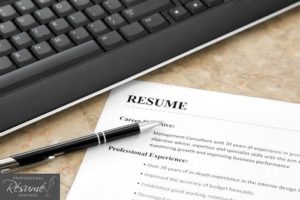 There’s always a good time and a bad time to change jobs, but most of the time it isn’t dependent on the time of year. Your own personal situation should play a larger role in determining when the time is right to make a job change. With that being said, there are some advantages to making a job switch during the holidays, if you’re looking to do so. Many professional executive resume writers have their busiest weeks right now, as executives are looking to find a new employer before the end of the year. Here are some things to consider if you’re considering making a job change this holiday season.
There’s always a good time and a bad time to change jobs, but most of the time it isn’t dependent on the time of year. Your own personal situation should play a larger role in determining when the time is right to make a job change. With that being said, there are some advantages to making a job switch during the holidays, if you’re looking to do so. Many professional executive resume writers have their busiest weeks right now, as executives are looking to find a new employer before the end of the year. Here are some things to consider if you’re considering making a job change this holiday season.
Companies Are Definitely Hiring
Don’t put your job search on hold just because you think companies aren’t hiring. Companies today rarely stop hiring, and if they do, it’s not because of the holidays. Writing resumes that get you hired can be challenging if you haven’t had to craft yours much over the years, so you can always seek out a professional resume writer this time of year. You don’t want to miss out on an opportunity this holiday season, so don’t delay in sending in your resume and job application to companies who interest you.
A Change of Scenery Can Boost Morale
The holidays should be a joyous time of year for many reasons. If you’re not feeling the joy, it could be because of your job situation. Sometimes a change of scenery in the workplace is all you need to boost your morale. Spend a few days on LinkedIn profile writing so you have an up-to-date profile if a potential networking opportunity arises. Reaching out to other professionals and executives via LinkedIn can lead to potential job opportunities during the holiday season and beyond.
Don’t Miss Out On Great Opportunities
Any time you put a job search on the back burner, you’re potentially missing out on a great job opportunity. Continuing to write resumes that get you hired during the holiday season could give you a better chance to land a job than you would have otherwise. Many times the competition level will be lower during this time of year, since other potential candidates put their job searches on pause. Take advantage of this by staying active in your own job search.
Professional Resume Services consists of a team of professional executive resume writers experienced with helping executives like you land the job of their dreams. There’s never a bad time to update your resume, and there are more advantages than disadvantages to changing jobs during the holidays. Don’t hesitate to contact us if you’re thinking about changing jobs soon and need to brush up your resume.
When you’re crafting the perfect executive resume, you may struggle with what information to include and what information to hold back. Some accomplishments get left off of resumes because you don’t want to feel like you’re boasting about certain things or functions. While this humility is a great characteristic to have, you also need to make sure you’re including all the key components of writing an effective resume. Here are some of the most common accomplishments executives don’t include on their resume, but should.
Volunteer Projects
As an executive, it’s easy to think only your work accomplishments should be included on your resume. However, volunteer projects you’ve worked on are important to include today as well. The top rated resume writing services will always ask you what you’ve accomplished outside of your employment. These projects could be completely unrelated to your career, such as helping out with your child’s school functions or similar projects. Being well-rounded in all aspects of life is attractive to potential employers today.
Leadership Projects
Think about all of your leadership projects or experience you’ve had in the past. Leadership doesn’t mean you have to hold the title of being a boss or supervisor, either. Demonstrating leadership qualities as a member of an executive team is just as important as holding a title for a leadership position. Most professional executive resume writers can identify the important leadership positions and qualities you have when you tell them about the different aspects of your previous job. As an executive, demonstrating any leadership qualities will prove valuable for the job you’re applying for, as well as advancement opportunities later on.
Ideas You Had Adopted By Your Company
Did you have a great idea from a brainstorming session with your team? The top rated resume writing services will tell you to include these ideas in your resume. This not only shows you can think quickly, but you’re also intuitive and confident enough to share your thoughts in a group setting. The importance of a team has never been more important than today, so an executive who comes up with great ideas to move business forward is a valuable part of any organization.
Professional Resume Services wants to help ensure you have the strongest resume possible before you apply for an executive job. Our professional executive resume writers can help you brainstorm your accomplishments and identify the most important ones, so contact us today to see how we can take your executive resume to the next level.
Having a digital presence in today’s business world is invaluable. However, some people only focus on improving their digital brand, which is a big mistake. Business cards have been effective since the beginning of time, and it hasn’t changed. Technology has made certain things easier for executives, but there are also plenty of challenges if you solely rely on it. Focusing on writing an executive bio on your LinkedIn page is great, but you still need a business card for people to find you. Here are some important points to consider when it comes to business cards for executives.
Business Cards Are Still Respected
 Whether you’re at a formal networking event, or you just happen to meet someone in passing, they may ask you for your business card. And if you don’t have one, your credibility is going to take a hit. Trading business cards is still expected for executives, so do yourself a favor and always have several handy. This practice is one of the most respected and expected methods of trading information, so you could be the talk of the event in a negative way if you don’t have a business card to offer.
Whether you’re at a formal networking event, or you just happen to meet someone in passing, they may ask you for your business card. And if you don’t have one, your credibility is going to take a hit. Trading business cards is still expected for executives, so do yourself a favor and always have several handy. This practice is one of the most respected and expected methods of trading information, so you could be the talk of the event in a negative way if you don’t have a business card to offer.
Be Careful Going Completely Digital
When you learn how to optimize your LinkedIn profile, it can be easy to go completely digital in your networking efforts. The truth is other professionals want to have your information readily available at all times, rather than searching for you on LinkedIn. Even if you have your LinkedIn URL on your business card, it’s still more effective handing them a business card than just saying “look me up on LinkedIn for all the information you need.”
Accuracy Is Never A Question With A Business Card
If you verbally give someone your email address or phone number to write down, the chances of them transposing numbers or not spelling your name correctly increases. But when you have the information on a business card, accuracy is never a question. Similar to writing an executive bio, being clear and concise with the information displayed on your business card is invaluable and can improve your brand even more so than your LinkedIn profile.
Professional Resume Services is an executive resume service dedicated to helping professionals with their resumes, cover letters, LinkedIn profiles and even business cards. Whether you need help simply writing an executive bio or need to start drafting a resume from scratch, feel free to contact us at any time for assistance.
As an executive, you have to give off the appearance and perception of being a well polished professional who makes few mistakes. One of the most common ways an executive can damage their reputation is by not having proper email etiquette. With email being the primary form of communication for many businesses, it’s always important to revisit some of the unwritten rules. Otherwise, even the cleanest and most impressive executive bio won’t be effective when you send it to a recruiter or even a close colleague. Here are some tips to consider.
Never Discuss Private Matters Over Email
Discussing private matters over email with anyone in a professional setting is never good. Emails never go away, and you never know when one could be used against you. If you have a private matter to discuss with someone in your office, go talk to them about it instead of putting it in writing.
Respond Timely
The general rule of thumb is an executive should respond to any given email within 24-48 hours. Not doing so makes it seem like you don’t place much importance on the sender’s email, which can give them a negative perception of you. In a way, this could go with your LinkedIn profile development as well, since people could reach out to you via the LinkedIn messaging system. Consider LinkedIn to be similar to email in a sense that timely responses are needed.
Avoid Using Slang or Jargon
If you use slang or jargon in text messages with family or friends, don’t let those words translate to email in a professional setting. You don’t need a professional resume writing service to tell you these words don’t follow the rules of email etiquette. Not only will you look unprofessional, but you may even hurt your chances at getting a raise in the long-term if you use slang or jargon to the wrong person.
Be Clear and Concise
People don’t want to read an email multiple times to determine what you’re actually saying or asking for. On the same note, keeping emails short and concise as much as possible will demonstrate your respect for the reader’s time. If you have to type out several paragraphs to get your point across, it may be time to set up a quick phone call to discuss the matter more quickly.
Professional Resume Services can help you with email etiquette tips, LinkedIn profile development, writing your executive bio or anything else related to a job search. Our professionals are ready to help you no matter where you are in your career, so feel free to contact us at any time to schedule an appointment.
 It’s completely healthy and natural to take a step back and evaluate your current job situation occasionally. This is especially true if you used to be happy going to work every day, but now your attitude has changed for some reason. The knee-jerk reaction is to immediately start looking for another job, and possibly even resign from your current position abruptly when things aren’t going well. However, before you visit the best resume writing service to help brush up your resume prior to resigning, consider these three questions.
It’s completely healthy and natural to take a step back and evaluate your current job situation occasionally. This is especially true if you used to be happy going to work every day, but now your attitude has changed for some reason. The knee-jerk reaction is to immediately start looking for another job, and possibly even resign from your current position abruptly when things aren’t going well. However, before you visit the best resume writing service to help brush up your resume prior to resigning, consider these three questions.
What Do I Not Like About My Current Job?
Sometimes things aren’t really as bad as they seem, but sometimes they are. Taking a step back and truly identifying why you aren’t happy can help you determine whether the issues are fixable. You may just need to talk to your boss about a particular issue that’s been bugging you for a while. And if it’s been a long time since you’ve received a raise or a promotion, consider bringing it up in a professional way. Don’t simply jump into updating your LinkedIn profile to declare your intentions to find a new job until you know exactly why you don’t like your current job anymore.
Is My Salary Comparable To Similar Executives?
The feeling of being underpaid is difficult. Sometimes you would feel better if you didn’t know what other executives with similar experience make. When your executive bio is similar to another executive’s, you naturally expect to be paid a similar salary. Get an idea of comparable salaries by looking at job boards and networking with others. If you truly are being underpaid, discuss the matter with your boss if you like everything about your job other than the salary. If you’re viewed as a valuable executive, you could get a significant raise to stay.
Am I On The Right Path To Achieve My Goals?
You should have both short-term and long-term goals as an executive. If you’ve been stuck with the same job responsibilities for a while, but have higher aspirations, then it may be time to look at a different company to give your executive bio a boost. However, some businesses move slower than other businesses, so if you’re getting valuable experience, you may consider sticking around to see where it takes you. Of course, as with any position, you have to be happy in order to do a good job and put yourself in a better position for advancement.
If you’ve answered all of these questions and still feel like you need to resign, Professional Resume Services is here to help you. We provide the best resume writing service, no matter what your current situation is and what your goals are. If you’re in need of any type of assistance in relation to your executive job search, feel free to contact us at any time.
Making a mistake in your executive resume can be detrimental to your success in landing your next job. Even if you use the best executive resume format imaginable, a typographical errors shows you could lack attention to detail, which is an important characteristic of any executive.
Proofreading your executive resume is essential, but proofreading it the right way is even more important. When you’re working on your resume for several hours, it’s easy to overlook a mistake. Here are some of the top ways you should proofread your resume.
Proofread Out Loud
When you read your resume out loud to yourself or to someone else, you’ll be able to identify some obvious issues. Whether the issues revolve around the overall flow of your resume or a word that simply doesn’t make sense, sometimes reading it out loud will help identify problems you overlook when reading it silently.
Don’t Skip Sections
The key to writing resumes that get you hired is to treat every section of your resume with equal importance. If you have a references section, proofread the phone numbers or other contact information. It’s easy to skip sections like this, but it will look unprofessional if your potential employer calls a wrong number when trying to reach your reference.
Have a Peer Review Your Resume
Your peers can play a big role in your effort to create resumes that get you hired. Ask a friend or family member you trust to look over your executive resume in detail. When you’ve looked at your resume for several hours over the course of a few days, sometimes it’s easy to overlook minor details. Having a peer review your resume can help identify these minor issues to clean up your resume overall.
Hire a Professional Resume Service
Hiring a quality professional resume writing service to proofread your resume should be your last step before finalizing your resume. But just because it’s the last step doesn’t mean it should be skipped. With the highly competitive job market today, having a professional proofread your resume can ensure it is in the best shape possible for improving your chances of getting an interview.
At Professional Resume Services, we can help executives not only write their resumes, but proofread them and provide constructive criticism and suggestions to make it better. If you are pleased with your resume, but want another set of experienced eyes to review it, feel free to reach out to us at any time.
With the world of automation today, it can be virtually impossible to get your executive resume into human hands if you only submit it online through job boards. It may be much easier and convenient to send in your resume online, but there’s no guarantee it will ever been seen. Recruiters will scan resumes for certain keywords and keyphrases using technology in order to eliminate as many as possible. If yours isn’t formatted perfectly, or if you don’t use the right words, it will be quickly brushed off.
So how can you write resumes that get you hired, but have a better chance of getting them into human hands? Here are a few tips to consider.
Optimize Your Keywords
Keywords are the most essential component of any effective resume. Any executive resume writer will look at your skills, qualifications and accomplishments and simply reword them to use appropriate keywords for your industry. This is the best chance you have at getting your executive resume through the automated keyword filter.
 Look For Connections
Look For Connections
Sometimes the best way to get your resume into human hands is to bypass technology completely. When you make connections with people in your industry, you may not even have to send in a resume online. You still have to focus on writing an effective resume, so don’t think your connection will guarantee you an interview. It’s just one of the best ways to get around the initial resume submission stage.
Be Short and Concise
No one wants to read a long resume. You have an average of six seconds to impress a recruiter or HR manager. The first thing an executive resume writer should do is look how to tighten up sentences and sections. Try to keep your resume to two pages or less, but the shorter the better.
Choose Your Approach Carefully
Whether you choose to submit your resume online or in person, following up with the company is important to know where you stand. Sometimes your resume is filtered out right away because of keywords, but sometimes it could have been lost in the shuffle. Without checking in periodically, you may never know. Just be careful not to follow-up too much to the point where you look desperate.
Professional Resume Services helps executives with writing an effective resume every day. Our skilled professionals know the tricks to getting resumes into human hands, so if you are struggling with the process or need assistance in any way with your job search, feel free to contact us at any time.
With the widely known importance of writing an effective resume, more companies are popping up claiming they write the best ones. Choosing an executive resume service is a big decision relating to your executive career. It’s easy for these services to claim to be the #1 service, but how do you really know they aren’t just using a standard template and switching things around to make yours look unique?
There are plenty of ways to distinguish a legitimate executive resume writing service from a fraud. Here are some things to consider when you’re looking for one.
Make Sure They Are Experts In Your Industry
If the resume service doesn’t indicate specific industries they have experience in, then you may need to look elsewhere. Resumes have to be very specific and specialized. If they aren’t, recruiters will see right through them.
Ask For Credentials or Certifications
When you contact an executive resume service, the writer should be able to provide you with one or more certifications. Those certifications could include:
-
- Certified Expert Resume Writer (CERW)
-
- Certified Professional Resume Writer (CPRW)
-
- Certified Master Resume Writer (CMRW)
- Certified Executive Resume Master (CERM)
While these aren’t the only certifications and credentials available, your resume writer should be able to show proof of at least one of them.
Check Out Any Samples
Any executive resume service should have an abundance of samples to provide you. Sometimes the key to writing a professional resume is incorporating different ideas from other resumes into your own. This is a good practice for writing your own resume, but the best resume writing services will treat you as a unique individual instead of just another resume. Samples should be available, but only for your own benefit.
Talk to An Actual Resume Writer
It’s always important to call an executive professional resume service prior to hiring them. If you talk to a sales person who only offers you their different services instead of learning about you, then you need to look elsewhere. A good company will ask you insightful questions about your career, accomplishments and achievements to get a complete understanding of your background. This could be in the form of an online survey, a phone interview, an in-person interview or a combination of these. The more questions they ask you, the better you should feel about their service.
At Professional Resume Services, we take the time to get to know the backgrounds of each of our executives. We can’t write your executive bio unless we know your complete career history, accomplishments and aspirations, so gathering as much information as possible before getting started is key. Feel free to contact us to learn more about our services and how we can be the right executive resume service for you.
 There’s always a good time and a bad time to change jobs, but most of the time it isn’t dependent on the time of year. Your own personal situation should play a larger role in determining when the time is right to make a job change. With that being said, there are some advantages to making a job switch during the holidays, if you’re looking to do so. Many professional executive resume writers have their busiest weeks right now, as executives are looking to find a new employer before the end of the year. Here are some things to consider if you’re considering making a job change this holiday season.
There’s always a good time and a bad time to change jobs, but most of the time it isn’t dependent on the time of year. Your own personal situation should play a larger role in determining when the time is right to make a job change. With that being said, there are some advantages to making a job switch during the holidays, if you’re looking to do so. Many professional executive resume writers have their busiest weeks right now, as executives are looking to find a new employer before the end of the year. Here are some things to consider if you’re considering making a job change this holiday season.






